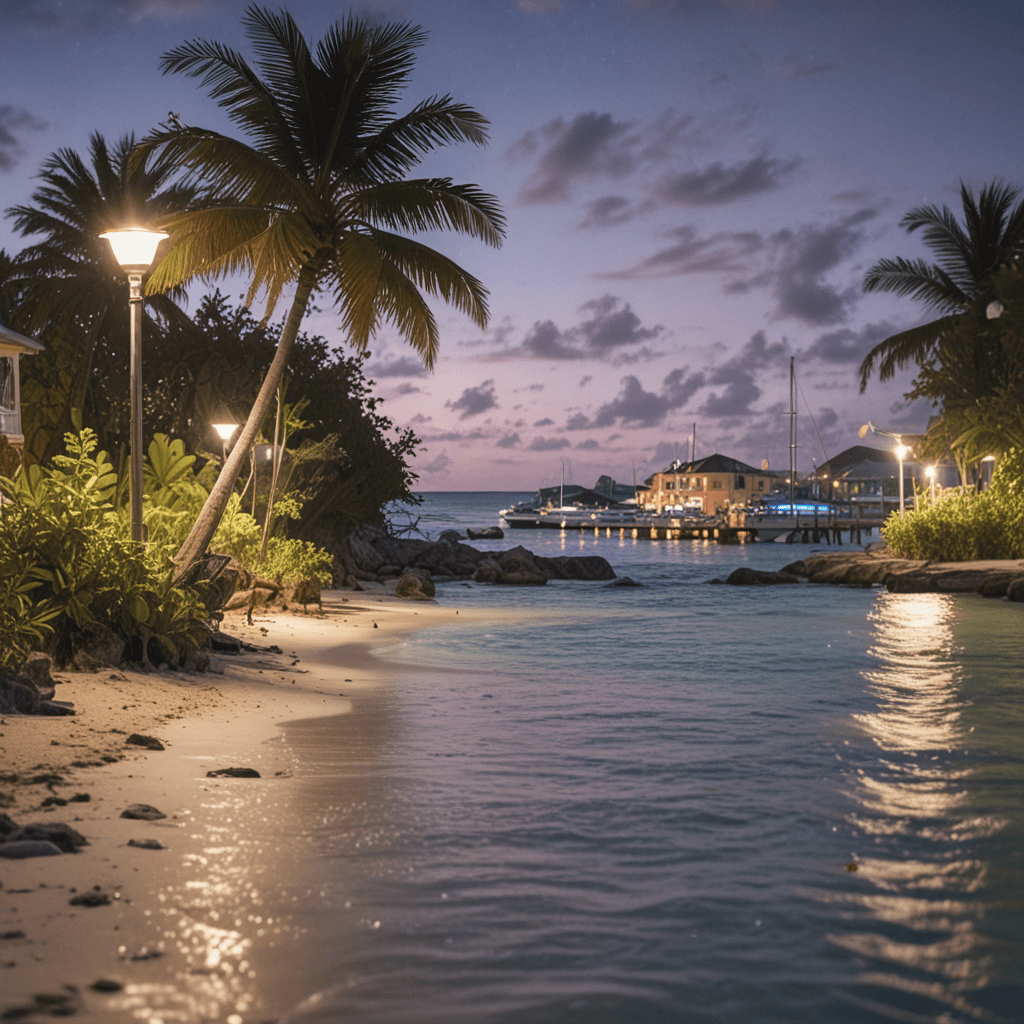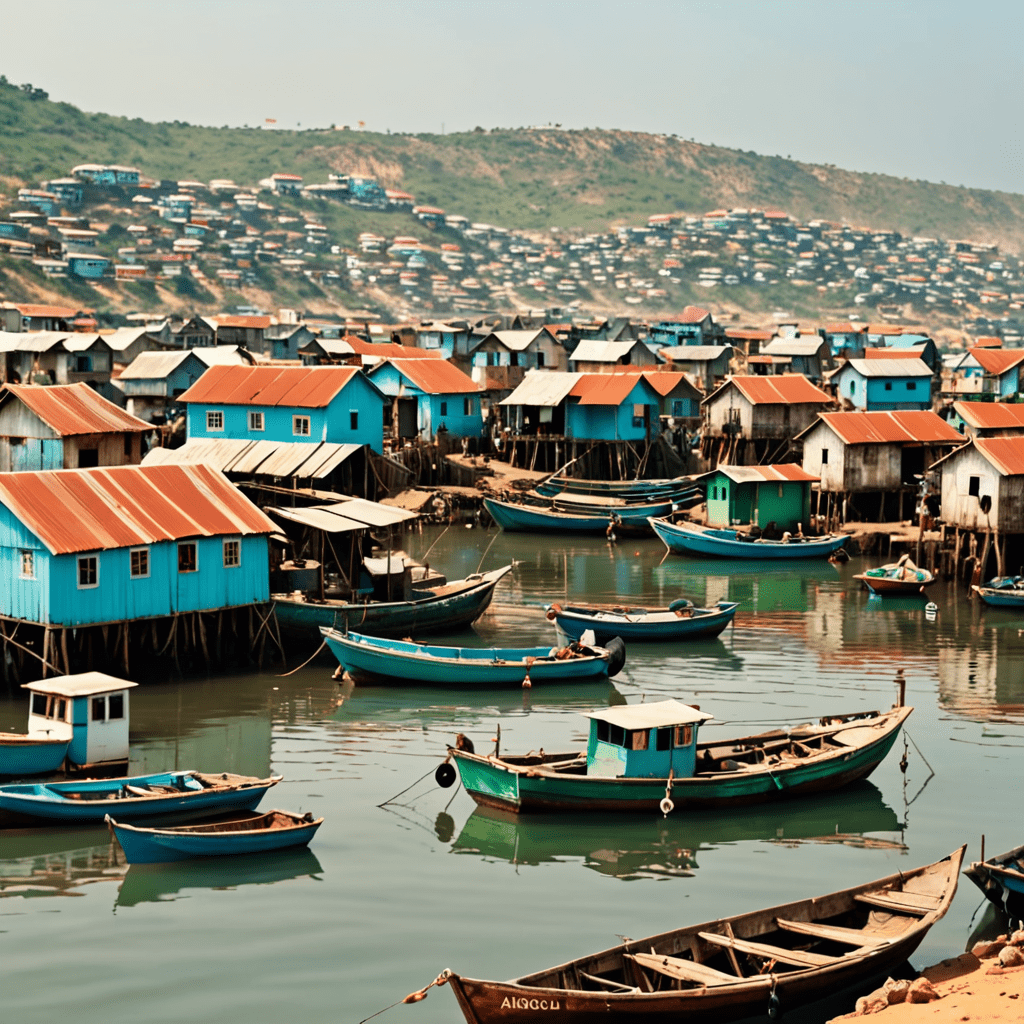Bahamas: A Destination for Marine Conservation Efforts
1. Introduction
Nestled in the heart of the Caribbean Sea, the Bahamas is a haven for marine biodiversity, boasting pristine coral reefs, vibrant seagrass beds, and diverse marine life. Recognizing the significance of this natural treasure, the Bahamas has emerged as a global leader in marine conservation, implementing a range of initiatives to protect and preserve its precious marine environment.
2. Pristine Marine Environment
The Bahamas takes pride in its pristine marine environment, which is home to over 4,000 species of marine organisms. The country's clear waters, vibrant coral reefs, and extensive seagrass meadows provide a sanctuary for a variety of marine life, including turtles, dolphins, sharks, and rays. The Bahamas is also a crucial breeding ground for many fish species, playing a vital role in maintaining the health of the wider Caribbean ecosystem.
3. Coral Reef Restoration Initiatives
Coral reefs are facing unprecedented threats due to climate change, pollution, and overfishing. In response, the Bahamas has implemented innovative coral reef restoration initiatives to protect and restore these vital ecosystems. These initiatives involve transplanting healthy coral fragments to damaged reefs, creating artificial reefs to provide new habitats, and implementing sustainable fishing practices that minimize damage to coral communities.
4. Marine Protected Areas
Marine protected areas (MPAs) are designated areas of the ocean that are set aside for conservation purposes. The Bahamas has established a comprehensive network of MPAs, including national parks, marine reserves, and sanctuaries. These MPAs provide safe havens for marine life, protect critical habitats, and support sustainable fishing practices. By limiting human activities within MPAs, the Bahamas ensures the long-term health and resilience of its marine ecosystems.
5. Sustainable Fishing Practices
Sustainable fishing practices are essential for preserving marine biodiversity and ensuring the future of fisheries. The Bahamas has implemented a range of measures to promote sustainable fishing, including catch limits, gear restrictions, and closed seasons. These measures help prevent overfishing, protect vulnerable species, and maintain healthy fish populations. By encouraging responsible fishing practices, the Bahamas supports the livelihoods of local fishermen and ensures the long-term sustainability of the country's marine resources.
6. Mangrove Conservation
Mangroves are vital marine ecosystems that provide numerous benefits, including storm protection, erosion control, and habitat for marine life. The Bahamas recognizes the importance of mangroves and has taken steps to protect and restore these valuable habitats. The country has designated several mangrove reserves and implemented conservation measures to prevent deforestation and promote mangrove restoration. By protecting mangroves, the Bahamas ensures the health of coastal ecosystems and the resilience of its shorelines.
7. Sea Turtle Protection
The Bahamas is a crucial nesting ground for several species of sea turtles, including the endangered green turtle and the critically endangered hawksbill turtle. The country has implemented a comprehensive sea turtle protection program that includes nest monitoring, beach cleanups, and educational initiatives. By protecting nesting sites and reducing threats to sea turtles, the Bahamas contributes to the recovery of these iconic marine species and ensures their future survival.
8. Partnerships and Collaboration
Marine conservation efforts in the Bahamas are strengthened through partnerships and collaboration among government agencies, research institutions, NGOs, and local communities. These collaborations foster knowledge-sharing, coordinate conservation initiatives, and leverage collective resources to achieve common goals. International partnerships also play a crucial role in supporting marine conservation efforts, providing expertise, funding, and technical assistance.
9. Local Community Involvement
Local communities play a vital role in marine conservation in the Bahamas. By involving local communities in conservation initiatives, the Bahamas fosters a sense of ownership and responsibility for the country's marine resources. Community-based conservation programs empower local people to participate in decision-making, implement conservation measures, and benefit from sustainable marine practices. This approach ensures that marine conservation efforts are aligned with local needs and values.
10. Future Directions and Challenges
The Bahamas remains committed to marine conservation and is actively working towards the sustainable management of its marine resources. Future directions include expanding marine protected areas, implementing climate adaptation measures to protect marine ecosystems from the impacts of climate change, and fostering research and innovation to inform conservation strategies. The challenges faced by marine conservation in the Bahamas include pollution, overfishing, and habitat destruction. By addressing these challenges through collaboration, innovation, and sustainable practices, the Bahamas can continue to safeguard its marine environment for future generations.
Frequently Asked Questions
Q: How does marine conservation benefit the Bahamas?
A: Marine conservation protects the Bahamas' valuable marine ecosystems, which provide essential ecosystem services such as storm protection, fisheries, and tourism revenue. It also helps to preserve the country's biodiversity and cultural heritage.
Q: What are some specific examples of marine conservation initiatives in the Bahamas?
A: Coral reef restoration projects, marine protected areas, sustainable fishing practices, mangrove conservation, and sea turtle protection are just a few examples of the many marine conservation initiatives underway in the Bahamas.
Q: How can visitors contribute to marine conservation in the Bahamas?
A: Visitors can support marine conservation by choosing responsible tour operators, respecting wildlife, avoiding single-use plastics, and participating in beach cleanups and conservation programs.



